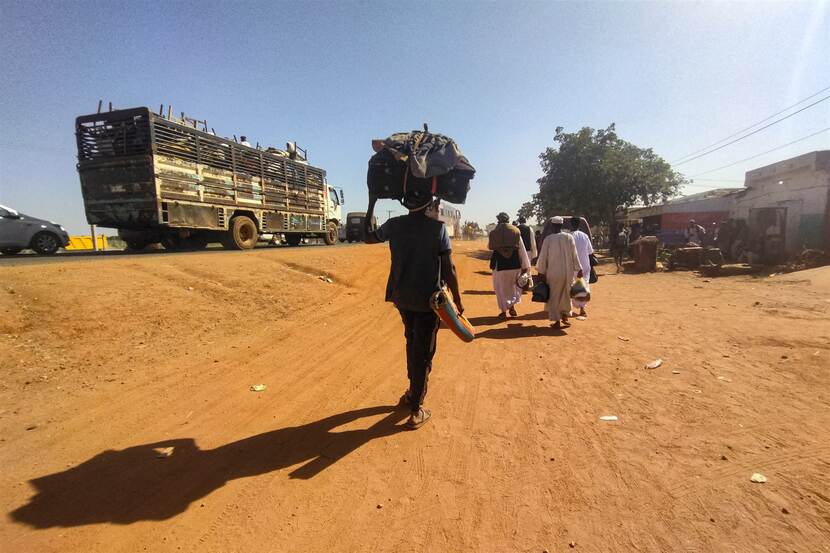Threat of food crisis in Sudan: potentially the biggest famine in decades
Sudan is on the verge of severe famine. The problem is already huge, with millions of Sudanese people chronically undernourished. But the food shortages appear to be growing much worse, mainly as a result of the devastating war, which is about to enter its second year. The Netherlands supports Sudan by providing humanitarian aid, but the Sudanese people need much more help.
Famine in the world
Sudan is not the only country currently suffering severe food shortages. There are also food emergencies in Ethiopia, Gaza, Yemen, Somalia and South Sudan. All these situations deserve the serious attention of the international community. But what is currently unfolding in Sudan appears to be the biggest food crisis the world has seen in decades, as revealed in a Clingendael report.
The biggest food crisis the world has seen in decades.
What is the situation in Sudan?
There has been heavy fighting between the Sudanese government army and the paramilitary Rapid Support Forces since 15 April 2023. More than 11 million people have fled the fighting within Sudan and to other countries, and there is no end to the conflict in sight. The people of Sudan are suffering as the violence escalates and devastates food production.
Both sides in the conflict are guilty of very serious human rights violations, such as extreme sexual violence against women and girls, including sexual slavery, ethnically targeted killings and the deliberate blocking of aid, including food and healthcare. This has claimed the lives of many Sudanese people, including large numbers of children.
What is the scale of the impending food crisis in Sudan?
The scale of the problem in Sudan is huge. The conflict is having a major impact on food production. The March harvests were very poor, and food processing factories have been destroyed or closed by the conflict. The economy has almost ground to a halt, so many Sudanese people have barely any income and food prices are skyrocketing.
The situation may grow much worse after the harvest season, as soon as stocks are exhausted. As many as 18 million out of the population of 45 million may be at risk of catastrophic famine (the most extreme form of food insecurity) as soon as May. People already have barely enough for one meal a day in the areas worst hit by the conflict. The next harvest is in six months’ time. Over the coming months, famine could cost the lives of more than a million people.
What is the Netherlands doing?
The situation in Sudan will only really improve once the conflict ends. Only then will it be possible for the necessary assistance to be provided, and for the economy to recover. The Netherlands is therefore working internationally to bring about a ceasefire. The Netherlands supports ceasefire negotiations through the European Union (EU). The EU is also exerting pressure on the warring parties in the form of sanctions.
The Netherlands is a relatively large donor of humanitarian aid for Sudan, mainly through the United Nations (UN) and international NGOs. At the UN, too, the Netherlands is urging an increase in international aid for Sudan and a stronger focus on tackling impunity in that country. It is pursuing these efforts via various channels, including through the Human Rights Council and support for organisations that document human rights violations.
15 April 2024: humanitarian conference in Paris
The Netherlands is making an additional €10 million available for emergency aid to Sudan. This additional assistance was announced by Minister for Foreign Trade and Development Cooperation Liesje Schreinemacher on Monday in Paris during a conference on the humanitarian situation in Sudan. The money will go to the World Food Programme to provide food to the Sudanese people.
